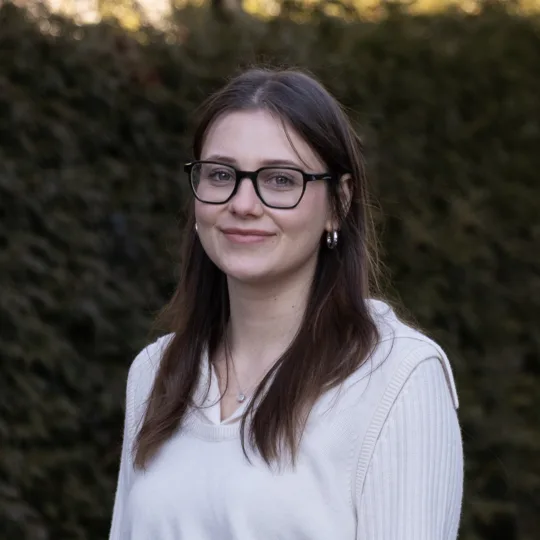Progress towards a European Degree
In the spring of 2024, the EU presented a series of proposals for a European-wide joint degree following analysis of experiences with joint study programmes run by European university alliances. Swiss higher education institutions, such as the University of Zurich, were also actively involved.

The idea of a European Degree stems from the growing number of joint study programmes launched by European university alliances. Such joint study programmes are based on a syllabus offered by at least two different universities and lead to issuance of a joint degree.
The European Degree concept now presented builds on the results of six Erasmus+ pilot projects involving over 140 universities from all EU member states. The past experiences that European university alliances have had with joint study programmes were systematically analysed: The legal and administrative hurdles at the respective national level were identified and explored to determine the form that a European Degree could take. As members of a European higher education alliance, Swiss higher education institutions were involved in two of these pilot projects.
As a member of the Una Europa alliance, the University of Zurich (UZH) takes part in two joint study programmes. It participated in the ED-AFFICHE pilot project together with 50 other universities from 22 countries. We spoke to Annika Martin, project manager at UZH, about her experiences with the ED-AFFICHE pilot project.
Why did the UZH become involved in the ED-AFFICHE pilot project?
The UZH wanted to find out more about joint degrees and gain a clear understanding of the current state of discussions and where they could lead. It made sense to do this pioneering work, as Una Europa has already made considerable progress in developing joint degrees compared to other university alliances. We wanted to acquire the same first-hand experience as other universities so that we could establish for ourselves what Swiss universities should look out for and where the opportunities and risks lie. Joint degrees are very appealing to students because the study programmes are pre-structured and ensure that their stays abroad are based on a co-ordinated syllabus. These international, European joint degrees and the European Degree are important developments for us in Switzerland, as they relate not only to EU member states, but to the entire European Higher Education Area.
Could you tell us more about your specific involvement?
Together with the University of Geneva, which participated as a member of the 4EU+ European university alliance, we were able to share our university-specific and national perspectives with fellow ED-AFFICHE participants. To start with, we shared our own insights into where difficulties may arise with joint degrees. We were pleased to find that Swiss higher education institutions enjoy a high degree of autonomy compared to HEIs in other European countries. At the same time, admission is one area where there could be exciting prospects for us in the future. Here higher education institutions in other European countries enjoy greater autonomy and leeway when it comes to selecting students and limiting the number of students admitted to Bachelor's degree level.
ED-AFFICHE led to specific recommendations to EU member states, the European Commission, quality assurance agencies and higher education institutions. From our vantage point, this project was a good opportunity to share the Swiss perspective.
Annika Martin

Annika Martin works for the University of Zurich managing teaching development projects.
What advantages and disadvantages do you think a European Degree will have for the Swiss higher education landscape and its students?
At this stage, it is not yet entirely clear which direction the European Degree should take: it could either serve as a standalone qualification or (initially) become a sort of quality label, i.e. an additional certificate attesting that a joint degree has been awarded. In any case, it is clear that the European Degree will always remain a niche product and will not compete with qualifications awarded from national study programmes focussing on specific disciplines. As such, it will in no way affect the independent profile of Swiss higher education institutions. Instead, it will be incorporated in a complementary fashion into existing study programmes for specific, mostly interdisciplinary or transdisciplinary fields of study.
It makes sense to award the European Degree (label) within the specific context of study programmes where students have acquired skills in a highly collaborative international environment. The European Degree would make this competence profile more visible.
What was it like for you to work with partner European universities in this project and in the context of Una Europa?
In our view, the ambitious plan set out in the ED-AFFICHE project was implemented remarkably well, considering that it involved the coordination of 51 participating universities. The Una Europa university alliance is very much about tangible cooperation in the areas of research and teaching. The collaborative work was driven by the idea that we should all learn with and from each other. We are trying to achieve something that no university can manage on its own. In the area of studies and teaching, we are developing innovative international formats that enable the broadest possible student body to study at a 'transnational campus'.
How interested are Swiss higher education institutions in the European Degree initiative?
We found that our assessments during the project were very much in line with those of the University of Geneva. The University of Lausanne was also involved in a parallel pilot project as part of its alliance. Whether other Swiss higher education institutions will show more interest remains to be seen. I can imagine that their interest will grow as soon as the initiative becomes more concrete and practically relevant, at which point the added value for universities (e.g. in terms of teaching synergies) and students will be clearer.
Where do things go from here?
At the University of Zurich, we are mainly focused on developing the two joint degrees further in the context of Una Europa. The aim is for the corresponding joint degrees to be labelled as European Degrees in the future. At national level, the idea still needs to be explored more thoroughly from a legal standpoint. There are quite a few hurdles in developing and operating such a programme. For example, different national legislation, university-specific rules, different processes and structures.
At European level, the ED-AFFICHE consortium has called on the European Commission to play a proactive role in coordinating the activities of all key stakeholders in the European Higher Education Area in order to make the European Degree a reality. At EU level, funding options through the Erasmus+ programme have been suggested to support implementation of the European Degree. In Switzerland, we need to find other ways to take part in this process since we are currently not associated with Erasmus+.
Una Europa
Una Europa is an alliance of eleven leading universities from across Europe. It has six focus areas (Cultural Heritage, Data Science and Artificial Intelligence, Europe and the World, Future Materials, One Health and Sustainability) to structure the development of joint learning opportunities, including joint degrees, and to further encourage student and staff mobility. The Una Europa community comprises over half a million students, 100,000 university staff and ten languages.
ED-AFFICHE
In 2022, the European Commission issued a call for proposals to facilitate the introduction of a common European Degree label. The ED-AFFICHE project, consisting of six alliances and 51 higher education institutions from 22 countries, was successfully completed in 2024. This project entailed analysis of existing joint study programmes and legal obstacles and gave rise to key recommendations on how the European Degree could be introduced.
Contact
Author



